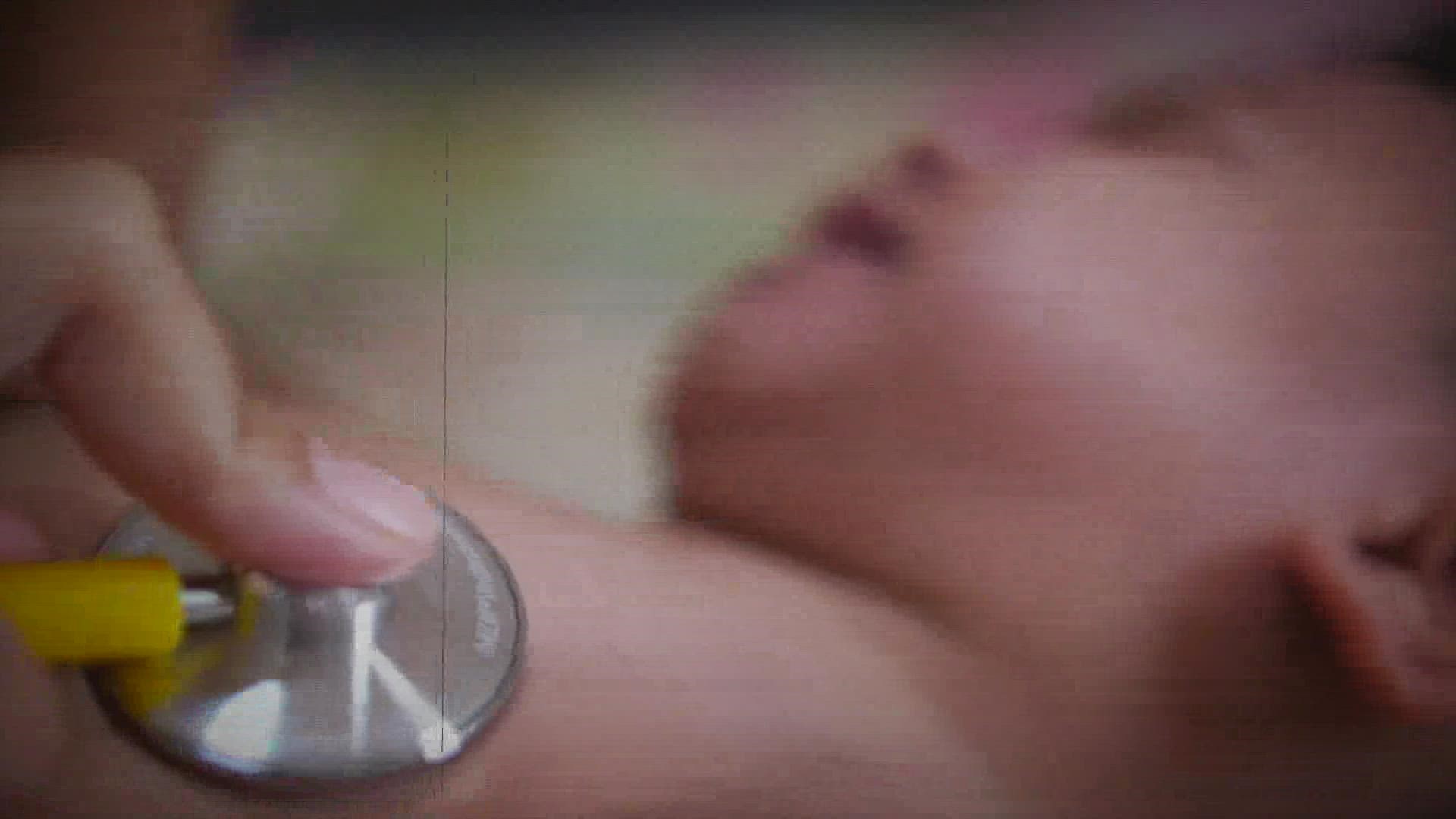GREENSBORO, N.C. — Last year at this time hospitals across the state were reporting 103 state-wide cases of Respiratory syncytial(sin-SISH-uhl) virus or RSV.
Last week, hospitals across North Carolina reported 810 state-wide cases, according to the North Carolina Department of Health and Human Services.
A 686% increase over the same week in 2021.
We are still weeks away from what has historically been the peak of respiratory virus season.
As a RN, Stephanie Hillery has seen more and more pediatric patients fighting these viruses.
"From a nursing perspective in the hospital. It's definitely one of the heavy, heading respiratory seasons that I have ever seen in my five years of nursing," said Hillery.
Hillery not only works with children each day, she also has a 4 month old child of her own who recently tested positive for RSV.
A virus that can be particularly dangerous for children less than a year old.
"As a nurse it's kind of weird to switch roles and be from the mother side of things and watch your child be taken care of by nurses and doctors. Definitely uneasy, unsettling, especially when we see the worst of the worst so, of course, it's hard not to think that way," said Hillery.
"It'll feel like we were getting better after two weeks and then boom you get another one because most of these 4-8 viruses happen in the winter," said Dr. Alison Gardner, a pediatrician with Novant Health.
Dr. Gardner says parents know their children best.
If they have a cough or fever, she recommends a visit to your pediatrician.
It's the more severe symptoms, such as trouble breathing, where you should visit the Emergency Department.
"When we start to notice it in the chest with breathing faster, breathing harder, unable to feed well, or unable to play really well because they are running out of breath too soon, those are our concerning signs," said Dr. Gardner.
Hillery's daughter spent one night in the hospital when her symptoms were at their worst.
She says they are lucky knowing other families who have not been as fortunate.
"I know a couple of families with their babies that are in PICUs, intubated, on some higher flow oxygen. Really praying for all these kids that are requiring an extra push to help me a little bodies out," said Hillery.
Aside from managing the symptoms, there is no treatment for RSV.
The virus could lead to ear infections, pneumonia or a bacterial infection known as Bronchiolitis.
All three can be treated with antibiotics like Amoxicillin -- which is currently in short supply.
Experts say wellness practices like washing your hands and staying home if you are sick is still your best method of prevention.

